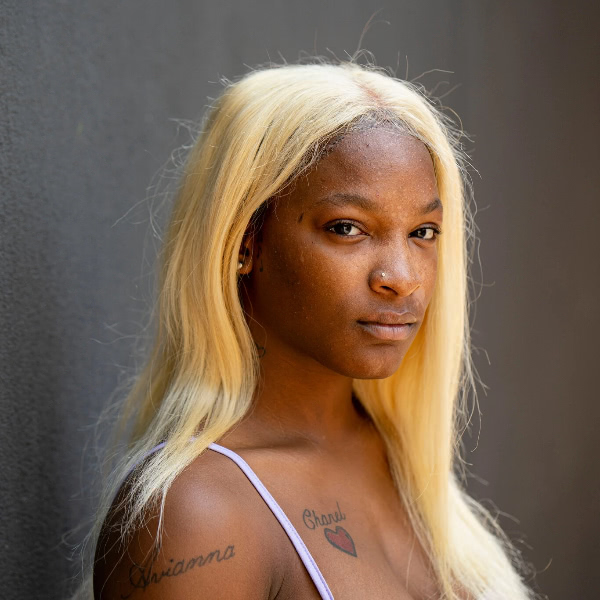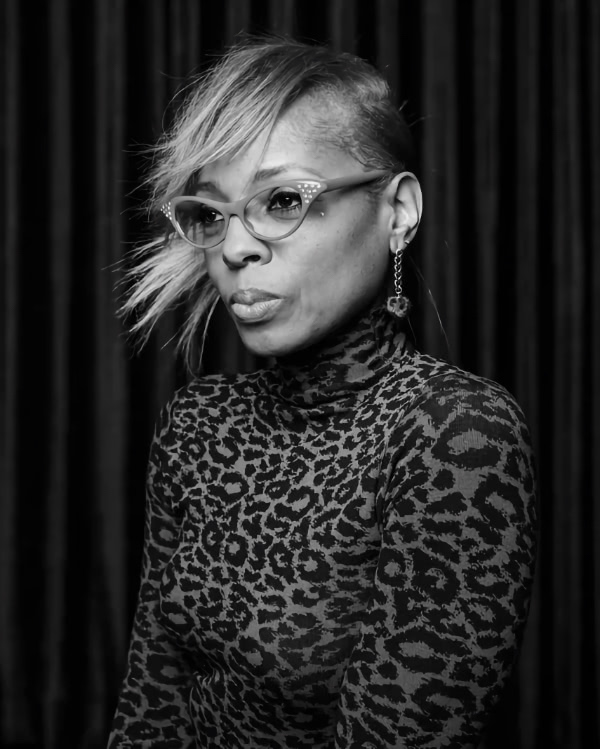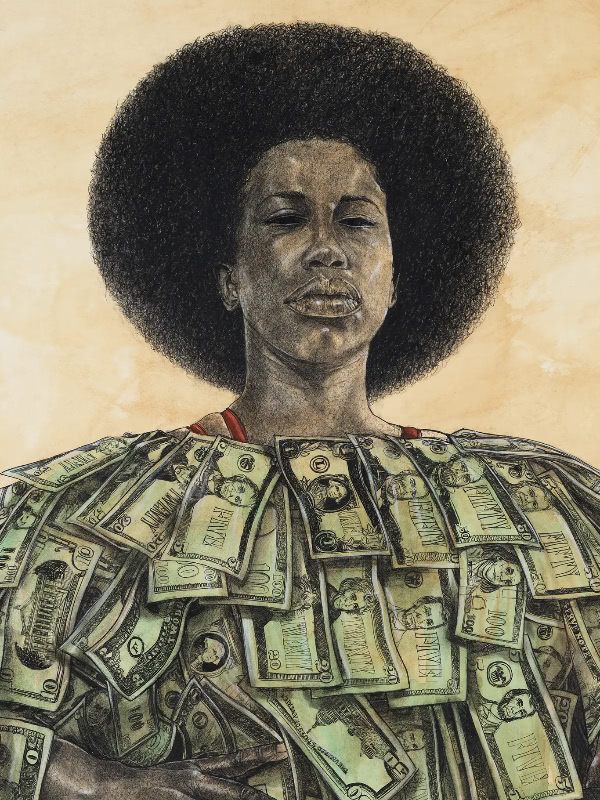When Dasani Left Home
What happens when trying to escape poverty means separating from your family at 13?
That’s the question at the center of this remarkable piece by Andrea Elliott for The New York Times.
I first met Dasani in October 2012, when she was an 11-year-old homeless girl growing up in Fort Greene, Brooklyn — a neighborhood where the rich and the poor live within striking proximity. The following year, I published a five-part series about Dasani after spending 14 months with her family.
All 10 of them — Dasani, her parents, her seven siblings and her pet turtle — were living in a single mouse-infested room at Auburn Family Residence, a decrepit city-run homeless shelter just blocks from townhouses that sold for millions. Day after day, Dasani would walk through Fort Greene’s streets, seeing into a world that did not see her. “I’m visible,” she later told me. “But society doesn’t see me.”
She had a delicate oval face, chestnut skin and luminous brown eyes. Tiny for her age, Dasani woke early every morning to feed and dress her siblings before getting them to school. She was a dancer, a sprinter, a proud street fighter. There were three ways, in her mother’s view, for a child to be popular: “Dress fly. Do good in school. Fight.”
Dasani and her family received a lot of attention after Elliott’s series of articles ran but remained homeless after the spotlight went away.
Elliott continued to follow them when Dasani received the opportunity of a lifetime, one that could help lift her family out of poverty: She’s invited to attend a boarding school hundreds of miles away in rural Pennsylvania that was established to do just that.
I won’t spoil the story here (which, by the way, is adapted from Elliott’s upcoming book Invisible Child). You’ll recognize parts of yourself and people you know in Dasani, and (hopefully) come to understand and support them better. I know I did. It’s an emotional roller coaster of a read you’ll be glad you didn’t miss.
She Warned Us About R. Kelly. No One Believed Her.
Angelina Chapin interviews former R. Kelly protégée Sparkle for The Cut:
On Monday afternoon, when Sparkle learned R. Kelly had been found guilty of all charges in his federal sex-crimes trial, she covered her eyes and bawled. Perhaps no one has waited longer for this news. For the past 20 years, Sparkle, whose real name is Stephanie Edwards, has been trying to convince the world that Kelly sexually abused her teenage niece. The decades-long crusade cost the 46-year-old her closest relationships and stifled her own music career.
Her family cut her off and her sister, brother-in-law and neice continued working with and supporting Kelly. Years later, they started speaking again but shut her out again after her appearance in the Lifetime doc Surviving R. Kelly in 2019.
CHAPIN: Do you have any regrets about doing the documentary, which came at such a high personal cost at a time when you and your family were in a good place?
SPARKLE: I don’t. I’m happy I did it, because otherwise maybe we wouldn’t be here with this verdict. After the doc aired, more girls got the guts to come forward. Of course, people were posting stuff on my social media saying, “You’re a liar. You’re a clout chaser.” But for the first time, I got nonstop DMs and emails from women saying things like, “Oh, I wish you were my auntie. I wish you were there to speak out for me when this or that happened.”
The Mendacity of Joe Biden
Charles M. Blow, writing for the Times:
Joe Biden, once again, disappointed many of the same Black voters who were his strongest supporters. How much of this can or should Black people stand? […]
When it was reported that then-President Trump called Haiti a [expletive] country, Biden responded on Twitter, saying: “It’s not how a president should speak. It’s not how a president should behave. Most of all, it’s not what a president should believe. We’re better than this.”
But deporting these Haitians is worse, not better. The Biden administration and Democrats in general always seem to say the right things on racial issues, but too often their deeds come up short when measured against their talk.
LeBron James Shouldn’t Cover for Vaccine Refusers
Jemele Hill for The Atlantic:
Though the percentage of unvaccinated people in the NBA is much smaller than in the United States as a whole, the league is a microcosm of what’s happening in society. When a virus has caused so much pain and cost nearly 700,000 Americans their life, the polite acquiescence of vaccinated peers seems like too much for unvaccinated players to ask.
What It’s Like at Rikers, According to People Who Just Got Out
There have been 12 deaths at Rikers just this year, at least half of them suicides.
Rebecca McCray, reporting for Curbed:
I was in intake for a week. Rikers is really bad right now. There’s no COs, they’re not feeding people, there’s no water, no showers, no phone calls. There’s people there that haven’t took showers in two weeks or longer. You barely eat; they don’t care. There were people in cells having seizures, and they just left them there. I was in a cell with about 30 other people. You could be sleeping, and they’d spray mace or come banging on the cells for no reason, just to wake you up. You’ve got COs talking about how they own us and can do whatever they want to us.
Soul Train Turns 50
NPR’s It’s Been A Minute podcast:
“I watched it with my sisters in the ’70s, digging the ‘Soul Train’ line, ‘Soul Train’ Scramble board - trying to figure it out before they did on television - learning the new dances with my sisters.” […]
Don [Cornelius] began “Soul Train” locally in Chicago in August 1970. He was just 33 years old. And he used his own money - $400 - on the pilot. With that small investment, a few weeks after its premiere, "Soul Train" became the No. 1 show in the city among Black audiences. […]
The first nationally syndicated episode of “Soul Train” aired in October 1971. By the end of its first year, “Soul Train” was in many markets nationwide. And Don became one of the first Black people to create their own national TV franchise in the U.S. ever.
Fun discussion. Totally forgot about the scramble board. Remember Bowlegged Lou? Remember when the dancers used to ask the artists questions after their performance?
Amanda Gorman Talks Writing, the Power of Change and Her Own Presidential Aspirations
Claudia Eller interviews the poet for Variety:
If you heard Gorman’s charismatic six-minute reading of her transcendent poem “The Hill We Climb,” about unifying a divided and struggling nation, at President Joe Biden’s inauguration, you might very well believe she will make good on her vow to become president of the United States. (She plans to run in 2036.)
Her desire to become president hearkens back to when she was 11 years old in math class talking about what she wanted to change in the world. “My math teacher looked at me and somewhat jokingly said, ‘Well, you should run for president.’ I said, ‘You know what? You’re right!’ … It became my ambition and my goal. It sprung this idea that I don’t just want to participate in society as a poet, but also as a politician.”
Gorman says the country is ready for “a new type of leader,” one who will govern by a “poetic spirit” and “cultural imagination.”
‘Invisible Child’ by Andrea Elliott
Matthew Desmond reviews the book for the Times:
So, what happened to Dasani? Elliott picks up the story in “Invisible Child,” a book that goes well beyond her original reporting in both journalistic excellence and depth of insight. Elliott spent eight years working on the book, following Dasani and her family virtually everywhere: at shelters, schools, courts, welfare offices, therapy sessions, parties. You move so seamlessly through different spaces that it’s easy to forget that each new institution came with its own barriers to access that Elliott managed to surmount. The reporting has an intimate, almost limitless feel to it, the firsthand observations backed up by some 14,000 pages of official documents, from report cards to drug tests to city records secured through Freedom of Information Law requests. The result of this unflinching, tenacious reporting is a rare and powerful work whose stories will live inside you long after you’ve read them.
On View: ‘Robert Pruitt: To Control the Universe’ at Salon 94
Pruitt’s exhibition is on view in Manhattan until October 30th.
Thanks for reading. See you next week.






